Prostate Cancer Awareness Month 2023 – Weight Management
- Prostate Cancer Awareness Month 2023 – Weight Management
- Commitment #1
- Commitment #2
- Commitment #3
- Commitment #4
- Commitment #5
Prostate Cancer Awareness Month 2023 – Weight Management
21 Days to Wellness

During this month dedicated to prostate cancer awareness, we take the opportunity to encourage you to make small changes to improve your overall well-being.
Maintaining a healthy and active lifestyle is essential for your quality of life, regardless of your prostate cancer diagnosis. Below, we present five beneficial behaviors for your health. We invite you to consider which one you find most achievable to incorporate into your daily routine over the next 21 days, at a time that suits you best. Each of these behaviors is accompanied by additional information and practical advice to guide you in your journey and facilitate your choice.
Balanced Weight, Balanced Life
Weight management is important, especially before, during, and after prostate cancer treatment. Maintaining a healthy weight can reduce the risks of chronic diseases such as diabetes, heart diseases, and certain types of cancer. Additionally, a healthy weight promotes overall well-being, energy, and mobility. In summary, it helps you feel better on a daily basis and gives you more strength to cope with health challenges, including the side effects of cancer treatments.
If you are considering starting a weight management program, it is advisable to consult with a healthcare professional, especially if you have pre-existing health issues.
Menu
COMMITMENT #1

I commit to taking a 5-minute break to walk or stretch before eating anything to avoid impulsive eating.
Modifiable behavior: Emotional eating
It is essential to recognize that emotional eating can be an instinctive response to stressful situations. Understanding that food should not be used as a way to cope with our emotions is the first step in changing this behavior. Becoming aware of our emotions, expressing them, and finding more appropriate ways to manage them, such as relaxation or walking, helps maintain a healthy relationship with food and promotes lasting emotional well-being. Of course, it may sound easier said than done, but let’s go over some basic principles to guide you below.
Emotional eating can lead to impulsive eating habits and an imbalanced relationship with food. When we use food to cope with stress, anxiety, or negative emotions, it can result in overeating, less healthy food choices, and potentially weight gain.
Emotional eating occurs when food is used as a momentary comfort rather than as a source of nutrition. But how do you know if you’re “eating your emotions”? How can you tell if you’re truly hungry? Consider the following:
Physical hunger is real if:
- It develops gradually.
- It results from an empty stomach.
- It can be satisfied by a variety of foods.
Emotional hunger is probable if:
- It arises quickly and feels urgent.
- It is triggered by a specific event or mood.
- It manifests as cravings for a particular food or type of food.
For example: Imagine you have a particularly busy and stressful day at the office. You have tight deadlines, stressful meetings, and a lot of pressure to perform. You start feeling anxious and overwhelmed by the situation. At that moment, you might feel the urge to eat something sweet or comforting, like cookies or chips. This urge to eat is triggered by the need to relieve the stress and anxiety you’re experiencing.
There are several signs and clues that may indicate you might be eating your emotions:
- If you find that you tend to eat when you’re stressed, sad, bored, or angry, it could be an indication that you’re using food to cope with your emotions.
- You might notice strong cravings for certain foods, especially those that are high in sugar, fat, or salt when you’re emotionally disturbed.
- Eating when you’re not hungry or continuing to eat even when you’re already full can be a sign that your emotions are influencing your food choices.
- Eating quickly and without truly savoring the food can indicate that you’re not paying attention to hunger and fullness signals, which may be related to emotional management.
- Feeling guilty or ashamed after eating, especially in large quantities or in response to an emotion, can suggest a link between your emotions and your eating habits.
- Hiding what you eat or eating in secret may indicate that you don’t want others to see what you consume, which can be related to your emotions.
If you recognize any of these signs in your eating habits, it can be helpful to step back, reflect on your emotions and eating patterns, and possibly seek strategies to better manage your emotions without turning to food. If it becomes a persistent issue, it may be important to consult a healthcare professional or a nutrition counselor for personalized assistance and guidance.
Other benefits of taking a 5-minute break before eating:
- Taking a break allows you to reduce the impulsive urge to eat quickly, giving you time to reflect on your food choices.
- he break provides an opportunity to recognize if you’re genuinely hungry, thus preventing eating out of boredom or stress.
- By taking the time to stretch or walk, you approach the meal with increased mindfulness, which can make the eating experience more enjoyable and satisfying.
- The break can help you better manage your emotions before eating, avoiding turning to food as a response to stress or negative emotions.
- Taking a break enables you to assess portion sizes more effectively, preventing overeating.
Here are some simple tips to avoid eating impulsively:
- Before eating, ask yourself if you’re truly hungry. If not, find other ways to distract or occupy yourself.
- If you feel the urge to eat out of boredom or stress, find a positive distraction like taking a walk, engaging in a creative activity, or reading.
- Sometimes thirst is mistaken for hunger. Drink a glass of water and wait a few minutes to see if you’re still hungry.
- Plan in advance what you’ll eat and when. This can help avoid last-minute impulsive choices.
- Avoid eating in front of the television, computer, or phone.
- Focus on your food to better recognize satiety signals.
- Refrain from eating directly from the packaging. Serve yourself a portion on a plate to better control quantities.
- Keep healthy snack options on hand to avoid turning to impulsive and less nutritious choices.
Additional resources
- Click on the links below to access more information to help you achieve your commitment:
- How to curb emotional eating (Heart and Stroke Foundation of Canada)
- In French: 11 astuces pour arrêter de manger ses émotions (La Clinique E-Santé)
COMMITMENT #2

I commit to drinking a large glass of water before each meal to help control my appetite, stay hydrated and prevent overeating.
Modifiable behavior: Neglecting hydration throughout the day
Hydration plays a crucial role in weight management as it can influence appetite and satiety regulation. Drinking an adequate amount of water throughout the day can help prevent confusion between thirst and hunger, which can reduce the risk of impulsive snacking and overeating. Of course, it may sound easier said than done, but let’s go over some basic principles to guide you below.
Not drinking enough water can lead to issues like fatigue, decreased concentration, and headaches. Your body’s functioning can be disrupted, and it may also lead you to eat more than necessary. Therefore, maintaining proper hydration is essential to stay energetic, focused, and healthy.
Did you know that hydration plays an important role in weight management?
- When we’re not adequately hydrated, our bodies can sometimes confuse thirst with hunger, leading us to eat more than necessary when what we really need is water.
- Additionally, proper hydration promotes efficient digestion and the proper functioning of our metabolism, which can influence our calorie-burning capacity.
- By maintaining adequate hydration, we can also avoid excessive water retention, which can temporarily increase body weight.
- Finally, by choosing to drink water instead of sugary beverages, you reduce your intake of empty calories, which can make it easier to maintain a healthy weight.
Some beverages can contribute to weight gain due to their added calorie content or their impact on appetite and weight management. Here are some examples of liquids that could have this effect:
- Sugary drinks: Sodas, commercial fruit juices, and energy drinks are often high in added sugar, which can lead to excessive calorie consumption and contribute to weight gain.
- Alcoholic beverages: Alcohol is calorie-dense and can also influence food choices by stimulating appetite or lowering inhibitions, which can lead to overeating.
- High-fat drinks: Beverages made with whole milk, cream, or flavored syrups can contain a significant number of calories from added fats.
- Frappuccinos or specialty coffees: Coffee-based drinks containing sweet syrups, whipped cream, and other toppings can be very calorific.
- Commercial smoothies: Some commercially prepared smoothies can contain high levels of sugar and calories, especially if they are rich in fruits and sweet ingredients.
Other benefits of proper hydration throughout the day include:
- Maintaining your energy levels, helping you stay active and burn calories.
- Assisting in the removal of toxins and waste from your body, thus supporting overall health.
- Preserving your muscle mass and helping to minimize excessive water retention.
- Improving your performance during exercise, which can contribute to weight loss.
- Regulating your body temperature, which can help burn extra calories.
- Drinking water when you feel the urge to snack can help you avoid unplanned snacks.
Here are some simple tips to help you stay hydrated throughout the day:
- Carry a water bottle with you: Having a water bottle on hand will remind you to drink regularly.
- Establish a schedule: Set specific times for drinking water, such as before meals or whenever you take a break.
- Add flavor: If you find plain water boring, add slices of fruit, cucumber, or herbs to give it a subtle taste.
- Drink tea or herbal infusions: Unsweetened tea and herbal infusions also count towards your hydration.
- Set a rule: For example, drink a glass of water every time you get up or every time you check your phone.
- Add ice: A glass of cold water can be refreshing and encourage you to drink more.
Last but not least, avoid filling your fridge with sugary drinks (sodas, fruit juices, etc.).
- Instead of choosing a sugary beverage, opt for a healthier alternative of your choice.
- Do you usually have a soda with your work lunch? Lemon water pairs nicely with a good sandwich.
- Do you often try to combat afternoon drowsiness with cola? A bit of sparkling water with fresh mint will wake you up just as well, if not better!
- If you have no other option but a carbonated beverage, such as at the movies, don’t be discouraged. Treating yourself to a soda from time to time is not a problem. The important thing is to break the habit of regularly consuming them.
Additional resources
- Click on the links below to access more information to help you achieve your commitment:
- In French: Les bienfaits de l’hydratation (Centre de santé communautaire de l’Estrie)
- In French: 5 trucs pour éviter les boissons gazeuses (Bon pour toi)
COMMITMENT #3

I commit to using smaller plates for all my meals for 21 days to better control portions and avoid overeating.
Modifiable behavior: Poor portion control
Poor portion control occurs when we consume excessive amounts of food compared to our actual needs. This can lead to overeating and unwanted weight gain. By paying attention to the size of our portions, we can better manage how much we eat, avoid overindulging, and maintain balance in our diet.
Poor portion control can lead to issues such as digestive problems, bloating, and gastrointestinal discomfort. Additionally, it can contribute to a lack of food control and even episodes of cravings. Ultimately, it can affect our ability to maintain a healthy weight.
The Quebec television show “L’épicerie” hosted by Johanne Despins and Denis Gagné, once investigated what we eat for lunch. They purchased lunches from ten fast-food chains to measure portion sizes and found that:
- Small-sized drinks had nearly disappeared, while large-sized drinks were simply gigantic.
- French fries often overflowed from their containers.
- Meals served in restaurants represented at least double, if not triple, the normal portion sizes. The ones they analyzed contained, on average, 1100 calories, which is more than half of the calories we need in a day. (For example, a combo meal with two hot dogs, fries, and a soda contains 1500 calories.)
Why do we eat so much? According to Laurette Dubé, a professor at McGill University’s Department of Marketing: “As human machines, we are programmed by 10 million years of evolution to eat what is calorie-dense, fatty, and sweet. But when it’s abundant all the time, throughout the day, the machine isn’t necessarily adapted.”
For example, we eat until we clean our plate, without even realizing that sometimes there is too much food. It’s difficult to stop and leave half of it. So, to eat less, perhaps we should simply start by putting less on our plate…
Portion Size
You can consult the Canadian Food Guide for more information on portion sizes.
- For meat, it’s the size of your palm or a hockey puck.
- For vegetables and fruits, it’s ½ cup or a tennis ball.
- For cheese, a portion is equivalent to four dice.
- For milk or juice, it’s one cup.
- For salad, it’s unlimited, as long as you don’t overdo it with the dressing.
Other benefits of using smaller plates to manage your portions include:
- Visually reducing the amount of food to eat.
- Smaller quantities can lead to a faster sense of fullness.
- Less food waste.
- Promotes awareness of appropriate portion sizes for meals and snacks.
Not sure where to start?
Here are some tricks and tips for effectively managing portions:
- Serve yourself a reasonable portion and avoid automatically going for seconds.
- Use measuring utensils to assess portions of cereals, nuts, and sauces.
- Start with vegetables or salads to fill a portion of your plate.
- e mindful of your hunger and satiety signals by listening to your stomach.
- Avoid eating directly from the packaging. Serve yourself a portion in a bowl or on a plate.
- Steer clear of all-you-can-eat buffets, as they can encourage overconsumption.
- During your meals, replace screens (TV, tablet, phone) with soft music.
Additional resources
- Click on the links below to access more information to help you achieve your commitment:
- In French: Quand nos assiettes prennent du poids (Extenso)
- Handy Guide to Serving Sizes (Unlock Food)
- Size up Your Food Portions (Unlock Food)
- Video: Tips to manage your food portions (Unlock Food)
COMMITMENT #4

I commit to setting down my fork between each bite to take the time to recognize the sensation of fullness.
Modifiable behavior: Ignoring hunger and fullness signals
It is important not to ignore hunger and fullness signals because they allow us to better understand our body’s food needs. These signals help us determine when to eat, what to eat, and how much to eat. By listening to them, we can establish a healthier relationship with food and maintain a balanced weight. Of course, it may sound easier said than done, but let’s go over some basic principles to guide you below.
By recognizing the sensation of hunger, we can provide our body with the energy it needs to function properly. Similarly, by identifying when we are full, we avoid eating beyond our needs, which can contribute to weight gain and digestive issues. Whether we are in the process of losing weight, gaining muscle mass, or simply aiming to eat healthily, it is important to pay attention to these signals.
Hunger signals indicate when it’s time to eat, and satiety signals indicate when it’s time to stop eating.
Hunger is generally the best-known signal, although its manifestations vary greatly from person to person. Obvious stomach rumbling can be observed, but thirst, headaches, decreased concentration, or irritability can also be indications that it’s time to eat.
Satiety is a little less well-known. It’s the feeling of satisfaction and being full without being overly stuffed. In other words, it’s the sensation of having eaten enough. This signal is a bit more challenging to recognize. A good clue? Compare the first bite of the meal to the last. Towards the end of the meal, the food generally tastes less good and provides less pleasure than at the beginning of the meal. This is the signal that our satiety has been reached. Taking a break during the meal can help us recognize it better.
The human body is a marvellous “machine.” When it needs something, it finds a way to get it. And when it’s too much, it also lets us know.
When we are born, we have the ability to listen well to our bodies, meaning the signals it sends us. It is by automatically and innately listening to these signals that a child manages to eat when hungry and stop when full.
As we grow up, many factors in the human environment can blur these hunger and satiety signals or push us not to listen to them. Whether it’s due to food abundance, the emphasis on thinness, or restrictive diets, most adults unfortunately are no longer attuned to the signals their bodies send them.
Keep in mind that it takes about 20 minutes for your stomach to tell your brain that you have eaten enough. If you devour your meal in 5 minutes, you will probably still feel hungry, even if your stomach is full.
Other benefits of placing your fork down between each bite include:
- Eating more slowly, which gives you the opportunity to better understand and identify your satiety signals.
- Improving digestion and reducing episodes of bloating.
- Better appreciating and savoring your meals.
- Promoting mindfulness of what you are putting in your mouth.
Not sure where to begin?
Here are some practical tips:
- Turn off the TV and eat without a phone, computer, or tablet at the table.
- Take the time to prepare your meal or snack and pay attention to their presentation.
- Eat slowly and take the time to savor each bite. This gives your body time to signal when you are full.
- Take the time to chew your food thoroughly.
- Don’t force yourself to finish your plate. You can always keep the leftovers for later.
Additional resources
- Click on the links below to access more information to help you achieve your commitment:
- In French: 5 trucs pour écouter ses signaux de faim et de satiété (Endorphine Nutrition Sportive)
COMMITMENT #5

I commit to keeping a food journal to record what I eat and drink throughout the day, my physical activities, and any changes in weight.
Modifiable behavior: Not tracking progress
Keeping a food journal helps raise awareness of what one truly eats, better understand eating habits that may be detrimental to health, and track weight loss progress.
A food journal can be especially helpful for those trying to lose weight, manage a chronic condition, or improve their overall health. It also helps identify dietary deficiencies and excesses, as well as potential digestive or allergy issues.
A food journal can be used to track the impact of foods on overall health and well-being in several ways.
First, by noting what you eat and drink each day, you can see if you are consuming enough essential nutrients such as vitamins, minerals, and proteins.
Additionally, the food journal can help you track the impact of foods on your weight and physical fitness. By regularly recording your weight and comparing this data to what you eat, you can track the positive or negative impact on your weight.
It can also be used to track the impact of foods on your overall well-being. By noting how you feel physically and emotionally after eating certain foods, you can identify the foods that make you feel good and those that make you feel less well.
To keep a food journal, simply record what you eat and drink, along with quantities and the times these foods were consumed. It’s also important to note any physical exercise performed and any weight changes.
One: Prepare a different column for each of these pieces of information. This way, it will be easy to record these data in the same place.
- Try to be as specific as possible so that you can get an accurate picture of your diet and lifestyle habits.
- You can choose to use a simple notebook, a diary, or an online application
- Don’t forget to note everything you snack on during the day or evening.
Two: Record your water consumption. It’s important to know your water intake to determine if you are adequately hydrated and if you need to drink more water or not.
Three: You could also note where you ate. In front of the TV? At your desk? For example, you might find that you consume certain foods in front of the television because you are bored.
Keeping a food journal also helps to:
- Identify sources of empty calories or excesses.
- Identify triggers for overconsumption.
- Reveal the connections between nutrition and your emotions.
- Measure your changes and improvements over time.
- Maintain your motivation by seeing your progress.
Facilitate communication with a nutritionist for personalized advice.
Not sure where to start?
- Look for online food journal templates for inspiration and ideas.
- Set aside a regular time each day to update your journal.
- Use simple descriptions for dishes (e.g., grilled chicken, green salad).
- Record your quantities: Did you go for seconds? In what exact amount?
- Note your emotions during meals, such as pleasure, guilt, joy, sadness, anxiety, or relaxation.
- Weigh yourself only once a week.
- Do not hesitate to consult a nutritionist to support you in this process.
Additional resources
- Click on the links below to access more information to help you achieve your commitment:
- How to Keep a Food Diary (wikihow)
- In French: Quel est l’intérêt du journal alimentaire? (Madietenligne)
- In French: 10 erreurs à ne pas commettre lorsque l’on se pèse (Herbalife Nutrition)
Additional Information - Prostate cancer
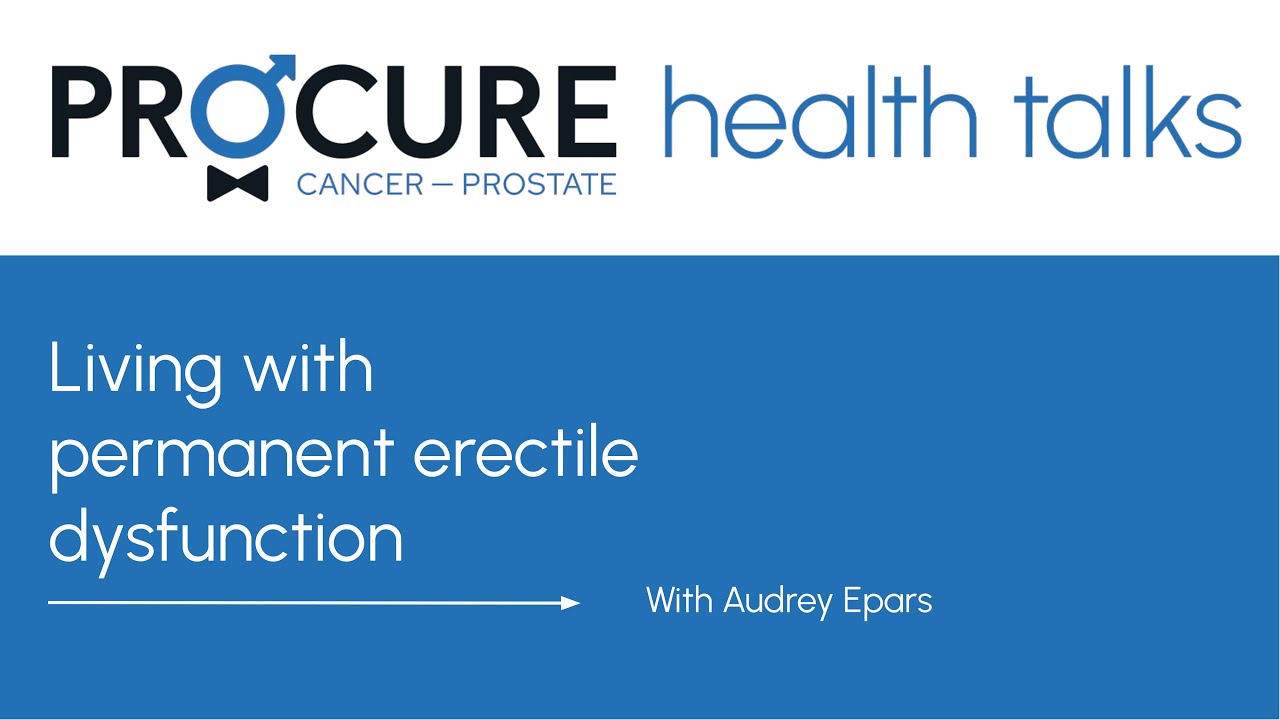
Living with permanent erectile dysfunction
Managing permanent ED after prostate cancer is delicate. Discover strategies to cope with it.
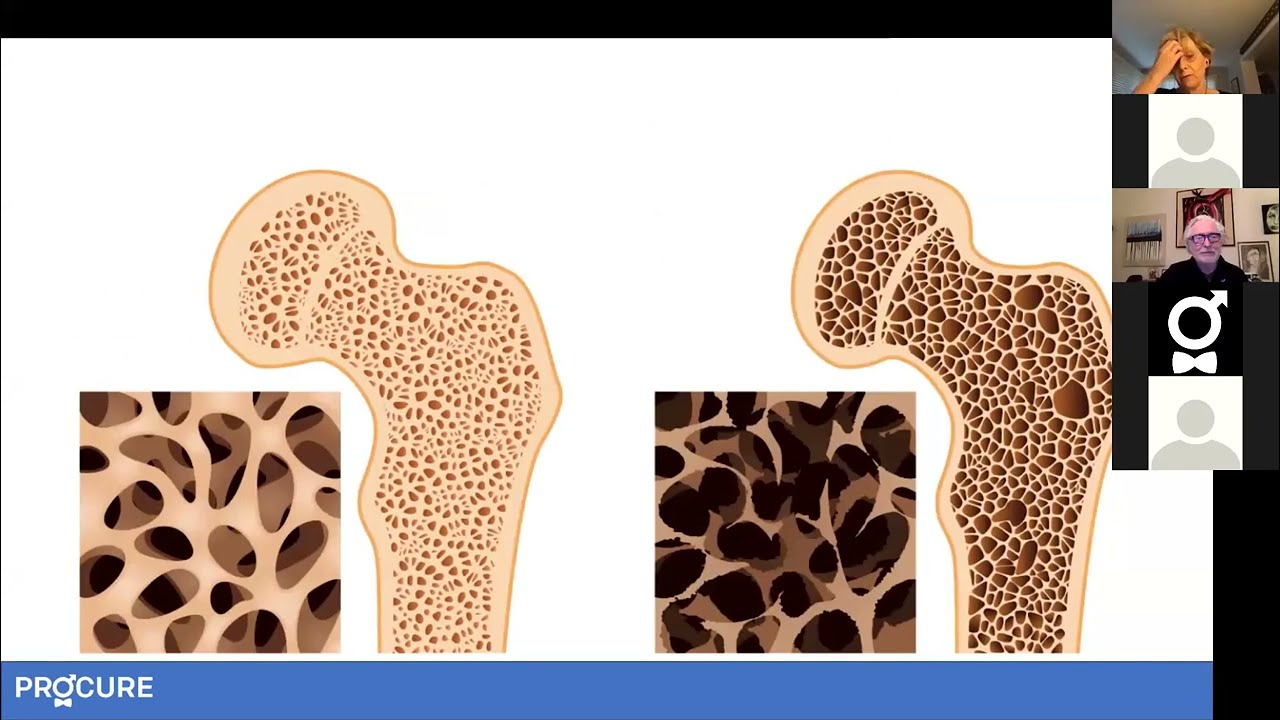
Hip fracture? No thank you! Male bone health
Dietary and physical adjustments can improve bone health and reduce the risk of fractures.
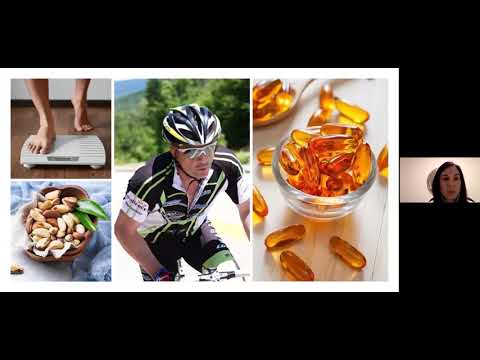
Nutrition during and after your treatment
Adjustments you can make to your diet or whether you have or are being treated with radiation therapy, hormone therapy, or chemotherapy with clinical dietitian.

Living Fully, Drinking Moderately
“Living fully, drinking moderately” discusses the benefits of reducing alcohol consumption and offers tasty recipes to support you.

Rediscovering Well-being After Treatments
After completing treatments, people often feel a mix of concern and relief. The main focus during this transition is rediscovering well-being.

Do you have a curved penis?
Is your penis curved? Does it curve to the left, right, upward, or downward? You have a curved penis and you or your partner want to know why?

Orgasm without erection?
It is entirely possible for a man to achieve orgasm without an erection or penetration and there are several ways to achieve this.
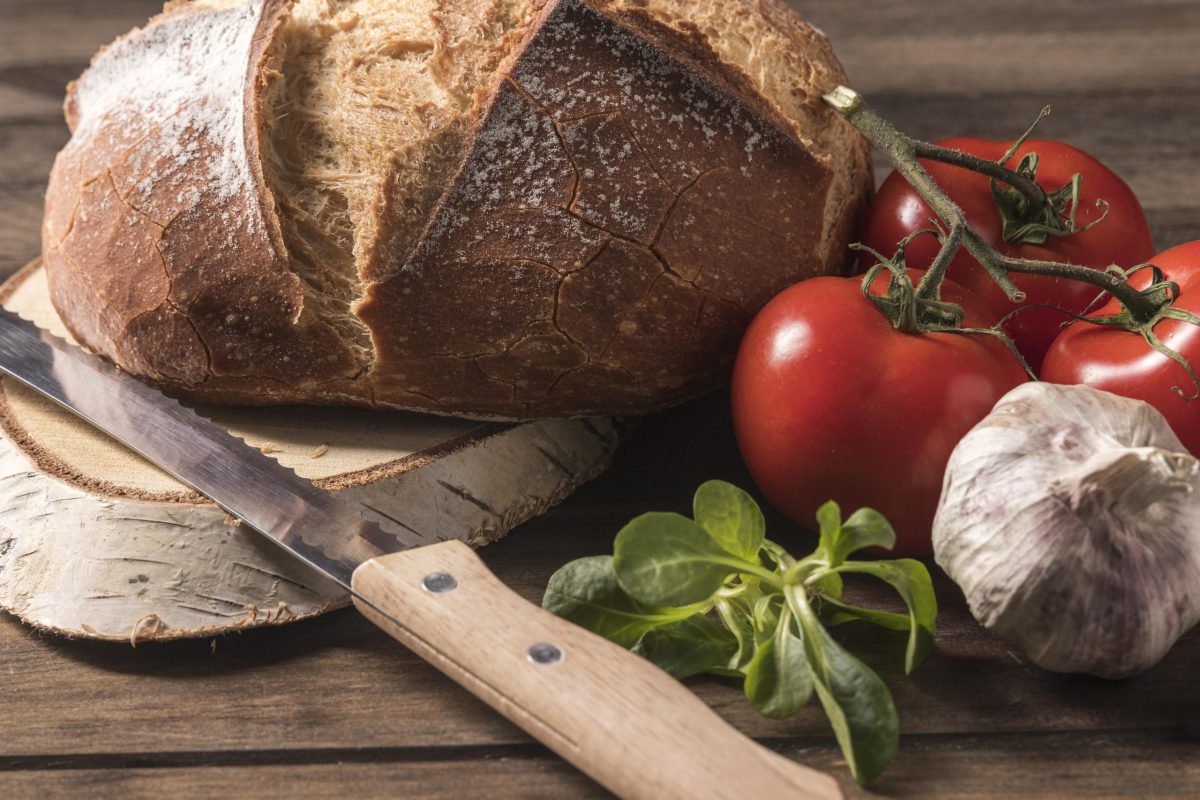
Simple and easy-to-make healthy recipes
Regardless of the season, why not take the opportunity to cook simple and easy-to-make healthy recipes that are rich in nutrients beneficial for your heart and prostate?!

Fresh start with new habits
We don’t have to wait until January 1st to make a fresh start and adopt new habits. This decision can be made at any time during our life.

Does warm milk help you sleep better?
Can a glass of warm milk help you sleep better in the arms of Morpheus? The Rumor Detector wondered if the research has confirmed this.
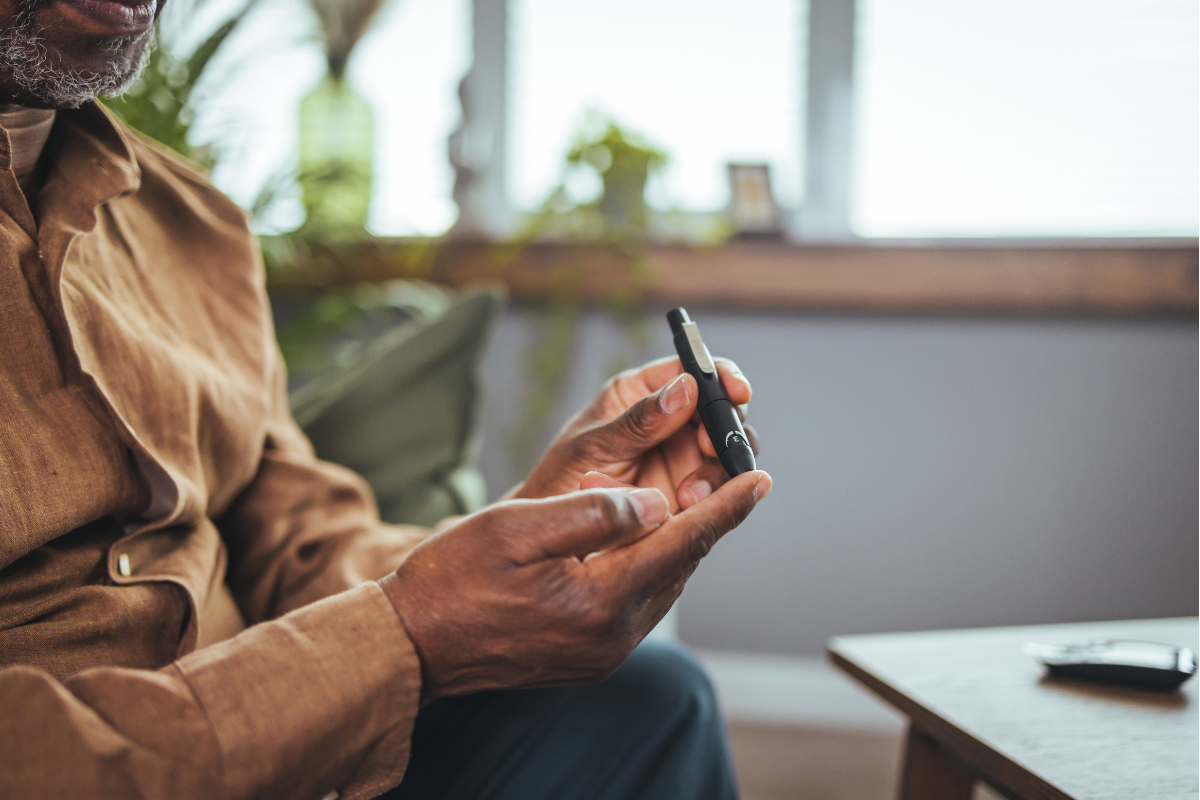
I am a little bit diabetic
My doctor informed me that I am a little bit diabetic and that I will have to make important changes to my lifestyle.
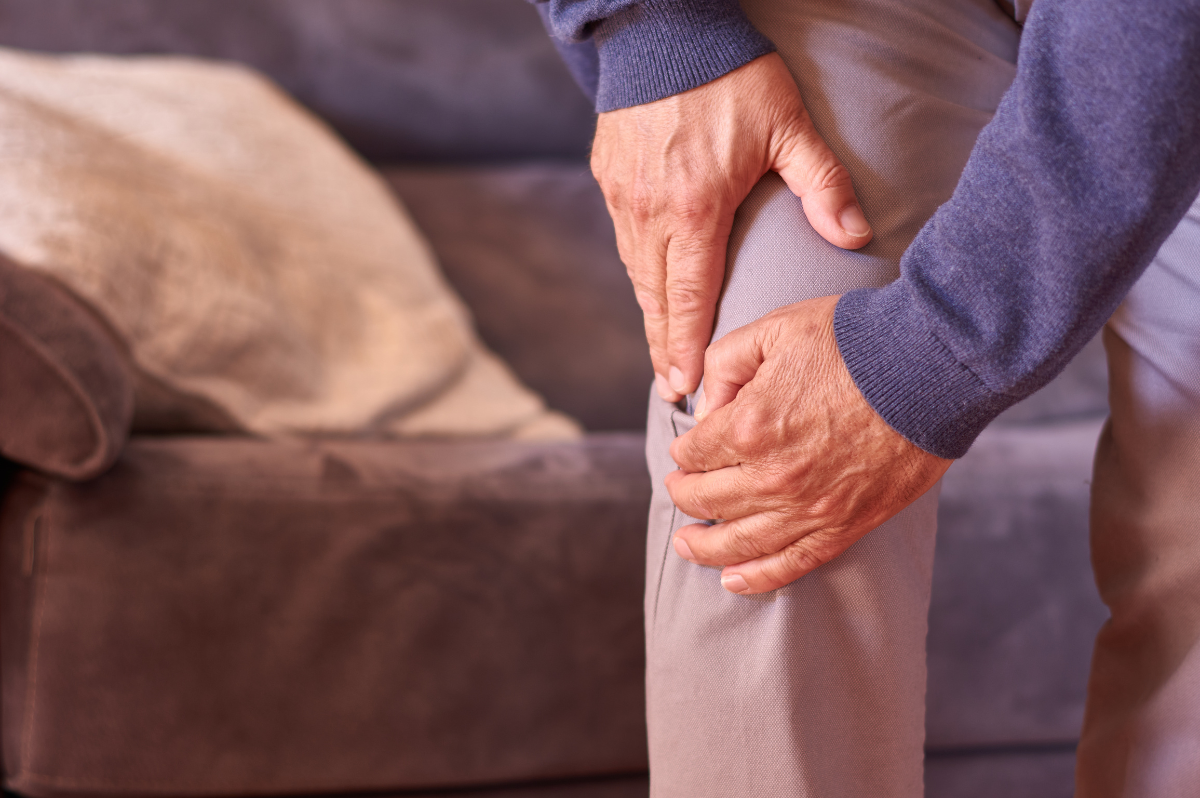
Caring for your bones in 5 points
Nicknamed “the silent thief” due to the absence of symptoms, osteoporosis is often only detected at a more advanced stage following a fracture.
Sources and references
- Weight Management Program Checklist
- Weight management – Diabetes Québec
- Régime spécial embonpoint
- Ordre des diététistes-nutritionnistes du Québec

